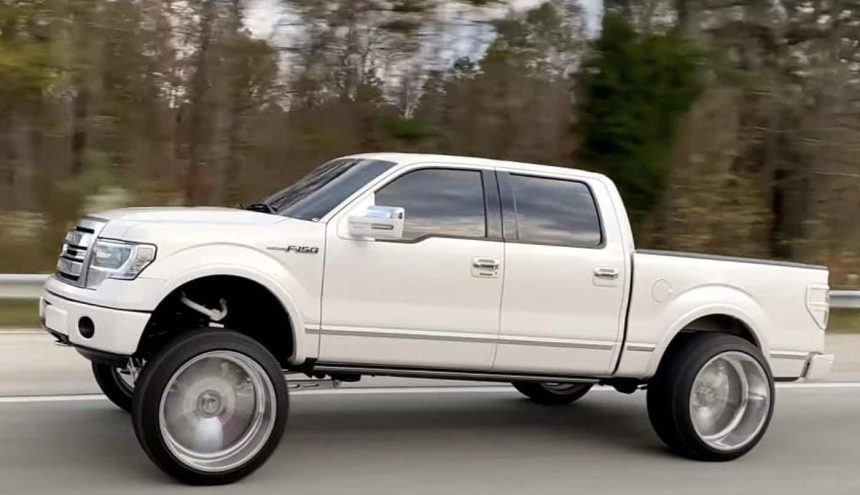Mississippi is one step closer to forcing high riders to abide by a new regulation.
The House of Representatives on Wednesday voted in favor of outlawing “squatted” vehicles, or those whose front bumpers are raised four or more inches above the height of the rear fender. The alteration essentially positions the front headlights of a vehicle to face toward the sky while the back lights stare at the ground.

House Bill 349, which passed 75-42, was authored by Rep. Fred Shanks. The Republican from Brandon said he test-drove a squatted truck to validate his concerns about the threat they pose to public safety. The move to prohibit the vehicles follows an initiative kickstarted by North Carolina – where the vehicle moderations allegedly began – which bans them from operating on roadways.
“I have actually done my due diligence. I have a buddy who worked on one of those trucks and I drove it around a parking lot. You cannot see what is in front of you for a good distance,” Shanks said on The Gallo Show. “It changes the geometry of the factory suspension. It’s very dangerous.”
In early January, a six-year-old girl was struck and killed by a squatted truck in the driveway of her Smith County home. Shanks cited the incident as evidence of the danger these types of vehicles present.
To keep squatted vehicles off the road in Mississippi, the GOP lawmaker has proposed the following punishments to be levied against those convicted of operating the altered automobiles:
- First offense – $100 fine
- Second offense – $200 fine
- Third offense – $300 fine and a one-year suspension of the operator’s license
If an offense occurs after five years since the last one took place, it will not be counted as a secondary offense, preventing an additional charge from being added to the fine the perpetrator would face.
In the other chamber of the Capitol, Sen. Jason Barrett, R-Brookhaven, drafted a similar bill to prohibit such modifications to vehicles. Senate Bill 2250 passed the floor unanimously last Thursday.
Shanks is hopeful that legislators in both chambers can iron out a concrete policy to enforce the new rule during conference. Mississippi would join North Carolina, South Carolina, and West Virginia in barring the modified vehicles if one of the bills is signed into law.







